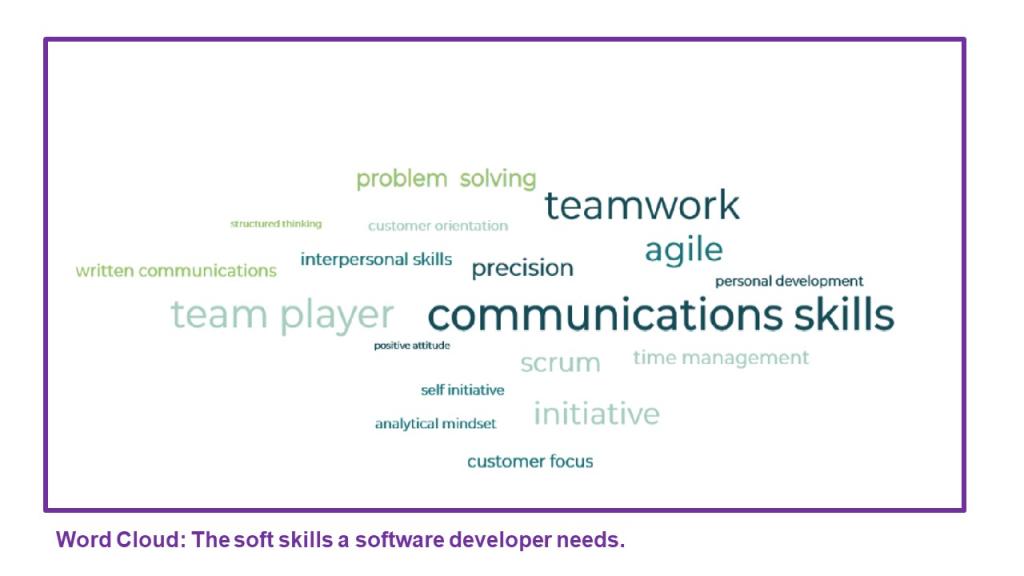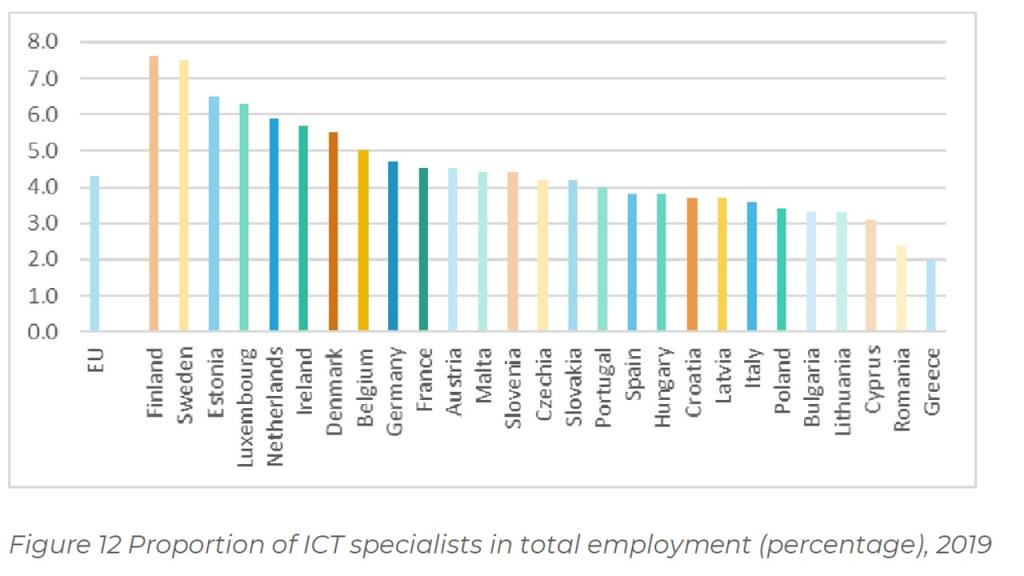The world around us is changing, with digitalisation impacting virtually every sector, and bringing in the need for new, future-proof and different skills. And when we talk about sectors, this includes the one of ICT (Information and Communication Technologies). The skills gap is present not just in manufacturing or healthcare, but also in software itself. But what are the key trends that define – or will come to define – the IT sector in Europe? How is the role of software specialists changing? Is it likely for their responsibilities to keep changing, or are there different undercurrents in this highly specialised and sought after sector?
These are some of the questions that ESSA, the European Software Skills Alliance (ESSA) explores in its October 2021 Needs Analysis Report, which sheds light on current and future knowledge and professional needs in ICT. Its findings are based on the latest research on computer skills, education and training programmes, labour market statistics and trends, skills intelligence and databases, surveying of job vacancies, and input from experts from all over Europe.
Tech alone is not enough: current and future skills trends
The role of ICT professionals and software developers is changing – and with a rapid pace. Various new software engineering skills are more and more needed on a day to day basis to respond to the increased automation of processes and aspects like testing, deployment and maintenance. The very requirements for skills related to the design, development, and use of software have changed too, driven by demand.
New approaches that require soft skills like teamwork, and depend upon setting up teams of professionals to create software and services (like DevOps) are also emerging. What is more, key emerging technologies like IoT, big data, machine learning and high performance computing require even more specific expertise and advanced skills. 
Data skills are becoming increasingly important, with data analysis now needed for a variety of processes to function. The key areas that are influencing software skills are AI, Big Data, Industry 4.0, and modelling (particularly in research). AI is another booming area: and while it is still underpinned by programming skills, a mix of soft and hard technical skills is fast becoming key for professionals. Skills needed to work with Augmented and Virtual Reality (AR/VR) are also gaining traction – and as software becomes more embedded (think of the Internet of Things or Industry 4.0), traditional borders between hardware and software are blurring together, calling in the need for wider skillsets.
Software professionals should not only be software experts, but should also be able to work in a team within organisations. According to the report, “there is a shift to new kinds of developers, like full stack developers and low code developers, but the most important insight is that developers are becoming more and more part of the regular organisation instead of a separate entity. Soft skills and knowledge of the business are therefore increasingly important for developers to be able to function”. The report estimates that around 40% of the software developers need some form of soft skills to perform their jobs.
Towards 20 million ICT professionals in Europe by 2030

The Needs Analysis Report by ESSA is yet another confirmation that software developers (in all their different functions, roles and skillsets) are much needed in Europe. Despite the strong growth in ICT, 2020 data from Eurostat points to the fact that there is still a big shortage of ICT professionals in Europe – an aspect hampering development and slowing down recruitment. Differences amongst EU Member States can be seen on Figure 2 below – but on average around half of companies struggled in one way or another to fill ICT vacancies.
Training the workforce of the future to tackle challenges
ESSA’s 2021 report does not stand in isolation, when it states that most members of the current workforce in Europe need to requalify, upskill, or reskill to reap the full benefits of the ongoing digital transformation. According to the World Economic Forum’s 2020 Future of Jobs Report, the COVID-19 pandemic constituted a gamechanger for organisational behaviour, with 42% of organisations planning to accelerate upskilling through targeted trainings delivered by education technology providers, and another 35% planning to launch brand new upskilling and reskilling programmes.
Strong and close level of cooperation between universities, education providers and businesses is another highlight of ESSA’s 2021 report: industry and education have to work closer together to bridge the gap between expectations of employers and the skills graduates in ICT come out with.
© European Union – 2021

